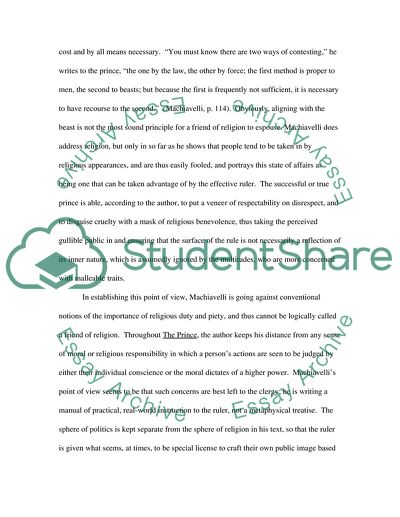Cite this document
(“Religion Analysis in texts of Machiavelli and Hobbes Essay”, n.d.)
Religion Analysis in texts of Machiavelli and Hobbes Essay. Retrieved from https://studentshare.org/philosophy/1552236-from-reading-the-prince-and-the-discourses-on-livy-by-machiavelli-and-the-leviathan-by-hobbes-are-machiavelli-and-hobbes-friends-of-religion-why-or-why-not
Religion Analysis in texts of Machiavelli and Hobbes Essay. Retrieved from https://studentshare.org/philosophy/1552236-from-reading-the-prince-and-the-discourses-on-livy-by-machiavelli-and-the-leviathan-by-hobbes-are-machiavelli-and-hobbes-friends-of-religion-why-or-why-not
(Religion Analysis in Texts of Machiavelli and Hobbes Essay)
Religion Analysis in Texts of Machiavelli and Hobbes Essay. https://studentshare.org/philosophy/1552236-from-reading-the-prince-and-the-discourses-on-livy-by-machiavelli-and-the-leviathan-by-hobbes-are-machiavelli-and-hobbes-friends-of-religion-why-or-why-not.
Religion Analysis in Texts of Machiavelli and Hobbes Essay. https://studentshare.org/philosophy/1552236-from-reading-the-prince-and-the-discourses-on-livy-by-machiavelli-and-the-leviathan-by-hobbes-are-machiavelli-and-hobbes-friends-of-religion-why-or-why-not.
“Religion Analysis in Texts of Machiavelli and Hobbes Essay”, n.d. https://studentshare.org/philosophy/1552236-from-reading-the-prince-and-the-discourses-on-livy-by-machiavelli-and-the-leviathan-by-hobbes-are-machiavelli-and-hobbes-friends-of-religion-why-or-why-not.


